I was in Iserlohn this summer and met American guitarist, luthier and composer Kenny Hill.
He is the third man who together with Alex Wang and Wolfgang Jellinghaus make up the driving power behind the Martinez Guitar Company.
I looked through a composition he had published, which Johannes Moller plays, and this seemed a good occasion to ask him his views on playing, making and writing.
Category Archives: Interview
Interview with Wolfgang Jellinghaus
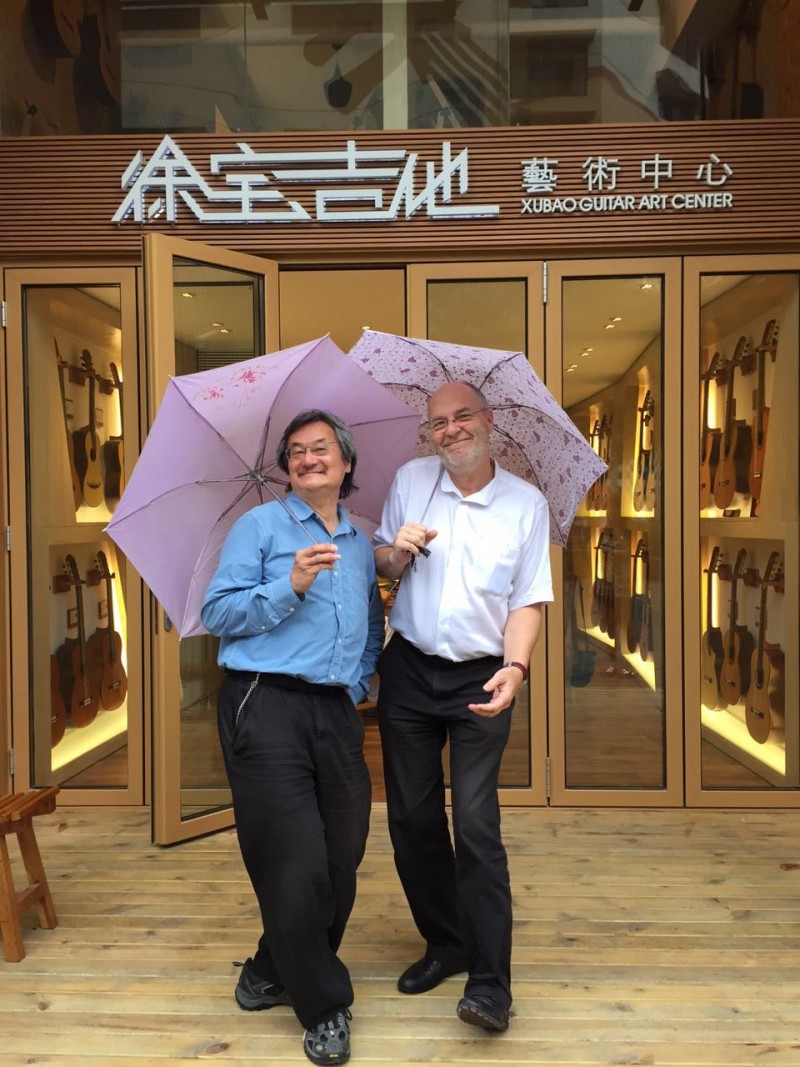
I first met Wolfgang Jellinghaus in Chengdu, where he and i seemed to be the only ones capable of taking on a drinking challenge proposed by a couple of university administrators!
Needless to say, we beat them hollow (I think we did anyway – I seem to recall pitchers of Mou Tai being bandied about).
I learned that Wolfgang was one of the triumvirate who make up the Martinez guitar company, the other two being Chinese entrpreneur and luthier Alex Wang and Kenny Hill from America.
Wolfgang also produces his own brand of “Milestone” guitars, and I was lucky enough to grab an interview as he drove us to a concert at the Iserlohn Festival this year.
Alex in China
The new era of classic guitar producers were initiated when a talented China luthier, Mr. Alex Wang (the founder of Martinez brand) who learnt from the American luthier, Mr. Kenny Hill who trained & influenced many aspect of Martinez team for best practices based on the USA hand-made classic guitar making. The third influential person in this joint venture is a German luthier, Mr. Wolfgang Jellinghaus who fill in the role as the tone woods sourcing for the best of Martinez guitar sound.
In summary, the tradition of hand-made best practices from USA, the internationally trained China skills to assemble guitars in a modern guitar factory out of China and the sourcing capability for best tone woods out of Germany are the example of a globally integrated classic guitar brand, that is the Martinez Guitars ! This is another proof that the buzz word of “globally integrated company” were no longer dominated by the high-tech industry, it is happening in the classic guitar industry. The result is a new era classic guitar which inherited the “the hand-made guitar making” quality out of the modern guitars factory facility at the affordable price points. The consumers who buy these guitars will benefit the outcome of ‘globally integrated company’ concept.
Intrigued? I was, and will be visiting the factory very soon.
Mr.Naxos – interview with Klaus Heymann

On Monday, May 18th, 2015, at a ceremony at Yale School of Music, Naxos Chairman and owner Klaus Heymann was presented with the prestigious Samuel Simons Sanford Award. Previous winners include Yo-Yo Ma, Mstislav Rostropovich, Isaac Stern, Alfred Brendel, Emanuel Ax, Marilyn Horne, Sherrill Milnes, Aaron Copland, Pierre Boulez, Sir George Solti, Eugene Ormandy, and Juilliard President Joseph Polisi.
Read More
I have known Klaus for many years – my first recording was with his wife, violinist Takako Nishizaki in 1985 – it is a collection of Chinese melodies for violin and guitar. This was first issued as an LP on HK Records and subsequently reissued on the Marco Polo label.
We recorded at the Gulbenkian Institute in Lisbon, and I have fond memories of Klaus helping to carry our bags so we wouldn’t damage our hands! I mention this because, since those days, Naxos was founded and one of the guiding lights in the selection process has been Takako.
Since then, I went on to record several CDs for Naxos and have recently produced a CD in China of the prodigy Kuang Junhong.
Naxos has gone from strength to strength and is a pioneer in the streaming of classical music via the Naxos Music Library. They now also have the ability to print CDs in smaller quantities and are establishing a classical music database.
Of course, this isn’t the first time Klaus Heymann has won an award, but he is particularly proud of this one.
Recently I was in Hong Kong, and had a chance to talk to Klaus about his latest award, his attitude to recording and digital distribution, and Naxos’ importance in the promotion of the classical guitar.
Xu’s Shops
What job do you do after graduating in classical guitar?
When I first visited Chengdu two years ago, I was surprised that the professor at the conservatory, Xu Bao also ran a music shop.
I learned that this was a place his more advanced students could teach and it was a general meeting place for the increasing number of students he had.
There were also guitars for sale.
On this present visit, he had just opened a new shop, a hundred yards down from the previous one, but I also discovered that there were another two shops in other areas of Chengdu.
They all sold relatively expensive guitars from Altamira, Martinez and Milestone.
Overall, there were around 300 students and each shop was managed and part owned by one of Xu Bao’s students.
Intrigued, I wanted to find out why there was such a demand for guitar studios, their function in the life of students who have finished their studies and how Xu Bao manages to sell higher quality and more expensive guitars to his students.
The studio/shops themselves were also an interesting design, incorporating lots of open space and making use of all the space that was available.
In the following interview, I was ably assisted by one of Xu Bao’s former students, Wenjun Qi, who is now studying with Bill Kanengiser in Los Angeles.
Capo Fail – Boris rides again
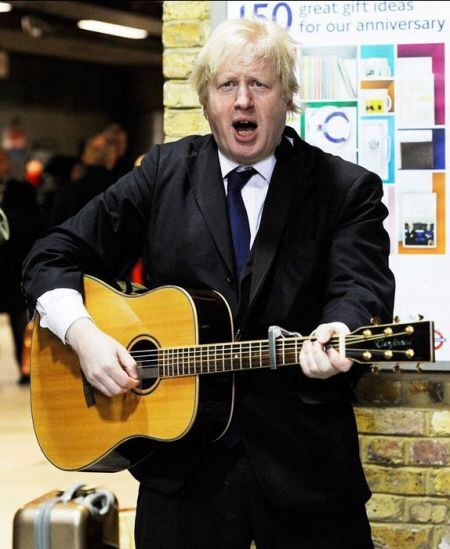
You have probably come across this already, but I just saw it on a Chinese website and thought it was quite funny, what with the elections looming.
Can you spot the non-deliberate error?
Here is an associated article in the Daily Telegraph
The Mayor of London has told an audience of young people that his biggest regret in life is failing to make it as a famous rock musician.
He said: “I think I regret bitterly, I still regret, my failure to get anywhere as a rock star and a player of the guitar. I tried at school to master the guitar with a view to becoming a famous … and it was hopeless. And I thought, right well I’ll master the piano and that went even worse.”
Maybe these guys should have stuck to playing the guitar…


Catching Up with Julian Bream: The Legendary Master Looks Back
Some new insights from Julian Bream, courtesy of the refurbished Classical Guitar Magazine. A fine interview by Thérèse Wassily Saba adapted from the December 2014 issue of Classical Guitar. Julian Bream was in the first ever issue of Classical Guitar in 1982.
Sorry to see that it (Classical Guitar) has left the UK for greener pastures, but happy that it will be invigorated. It has been an old friend!
Interview with Hanson Yao CEO of Altamira Guitars
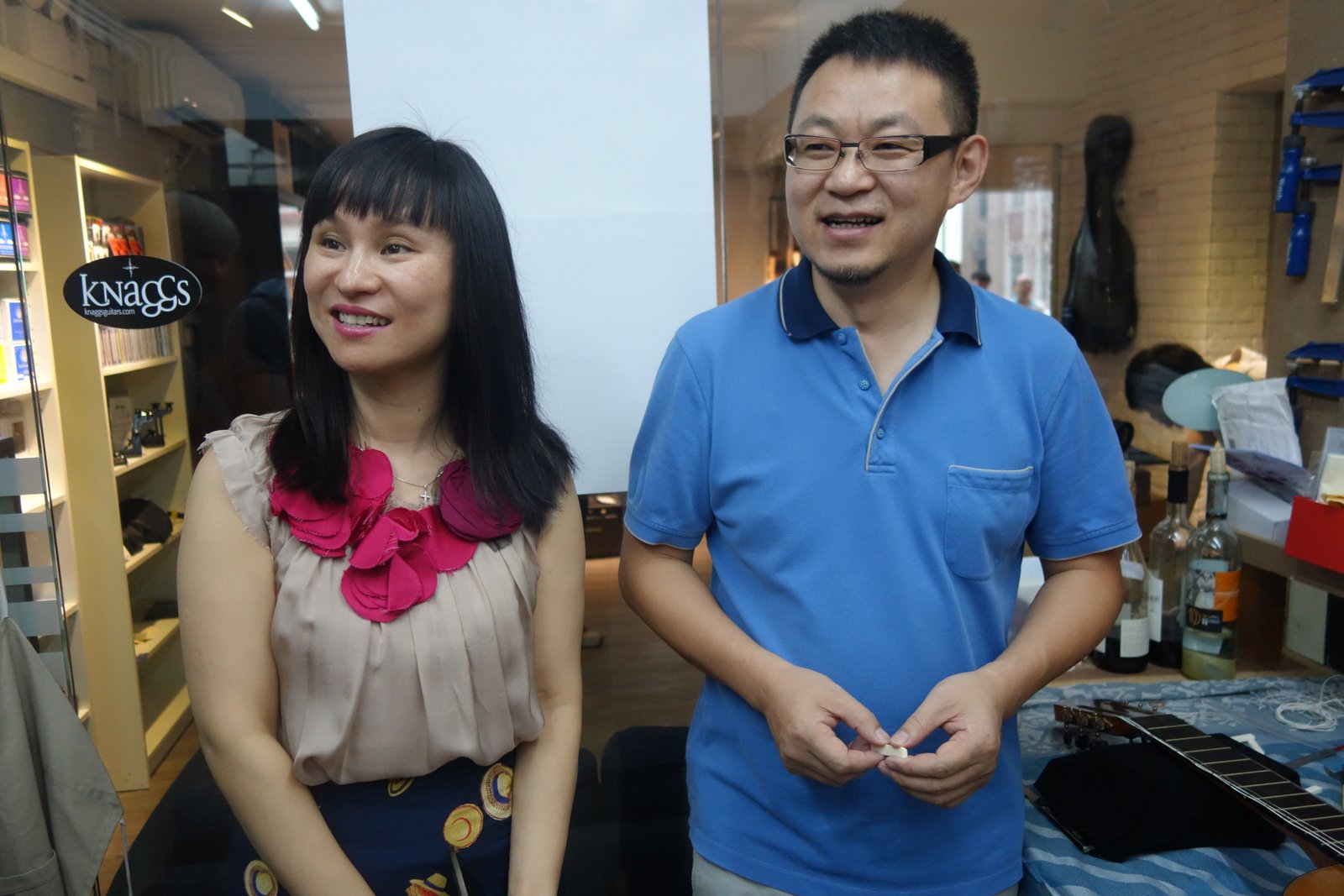
When I was in Hong Kong in October, I had the chance to interview Hanson Yao, an unfamiliar name to many, but a highly successful guitar maker and manufacturer. His company, which he started with his wife Jenny in Guangzhou, is Altamira Guitars, which sponsors many guitar events both in China and the west.
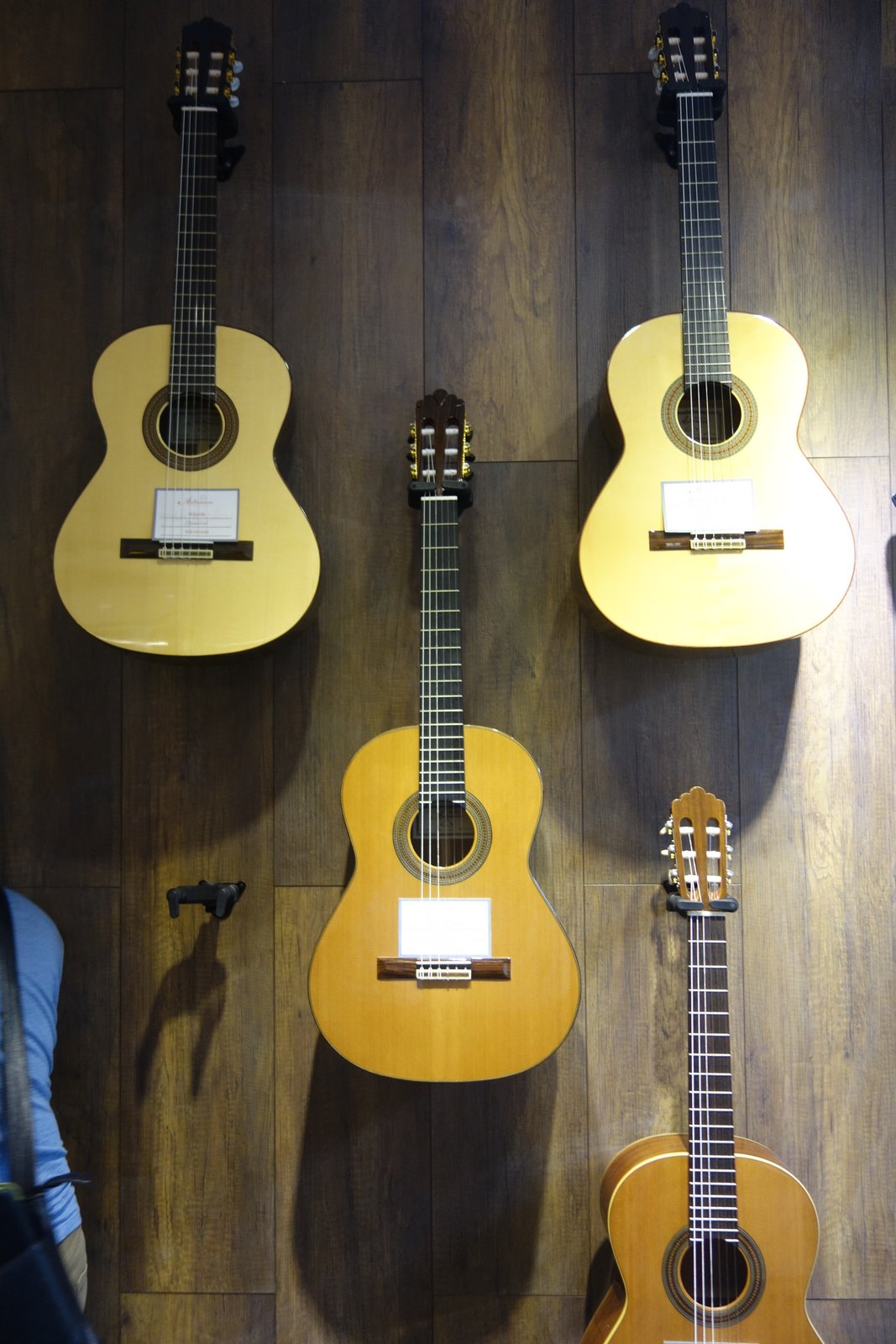
I ask him how he started and how the company has grown over the last seven years to producing 28,000 guitars a year with 120 workers, all of whom have been personally trained by Hanson at the factory in Guangzhou.
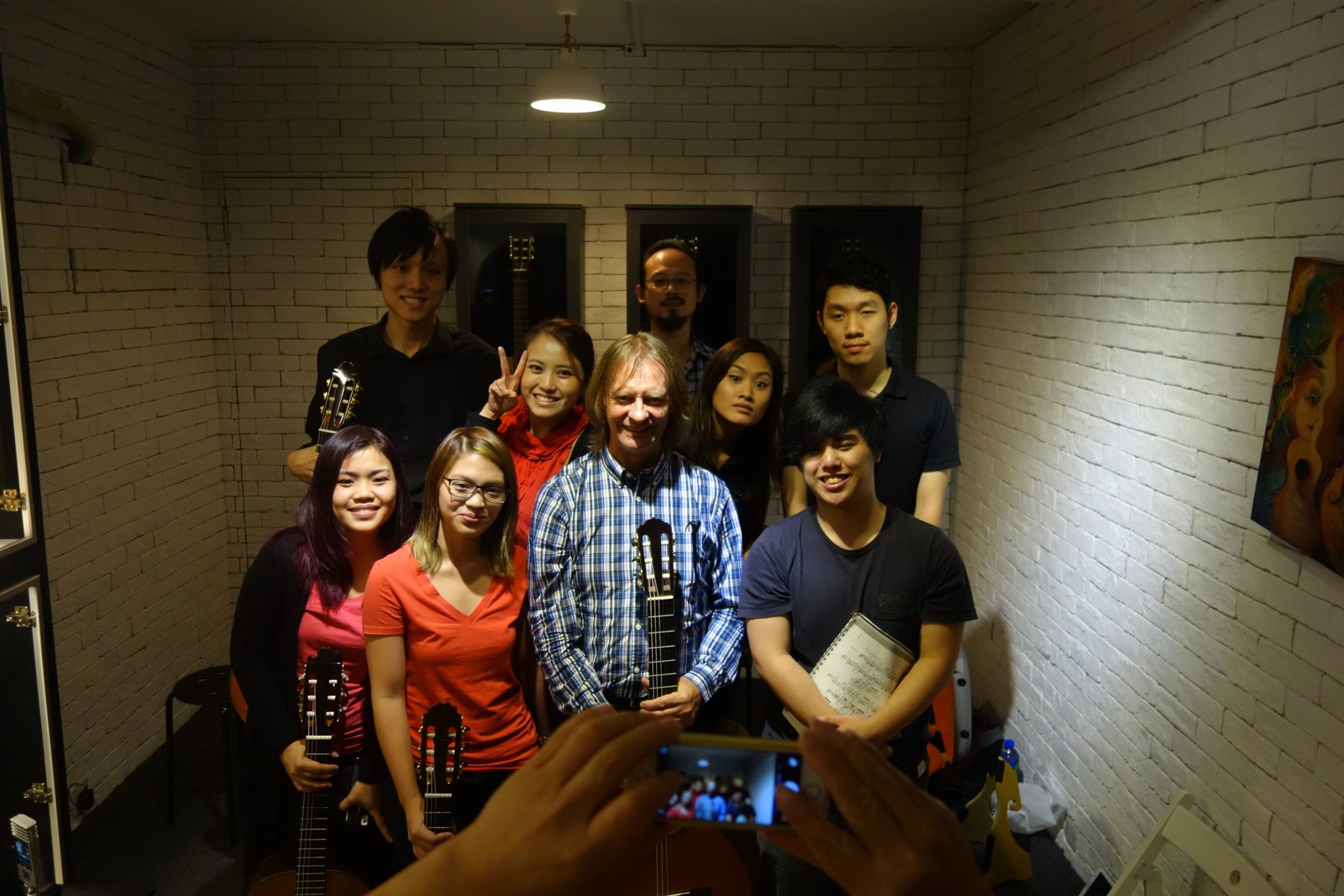
His recent venture has been the opening of a guitar shop containing his workshop in Hong Kong, which is already becoming a centre for Hong Kong guitar activities (during the interview, David Russell was giving a masterclass in the shop).
As well as guitars, the shop also sells violins, and Altamira will be sponsoring CD recordings for Naxos of prizewinning guitarists in many of its competitions throughout China.
I was lucky enough to produce just such a recording with the 14 year old prodigy Kuang Junhong which is to be released in December, and the hope is that there will be many more.
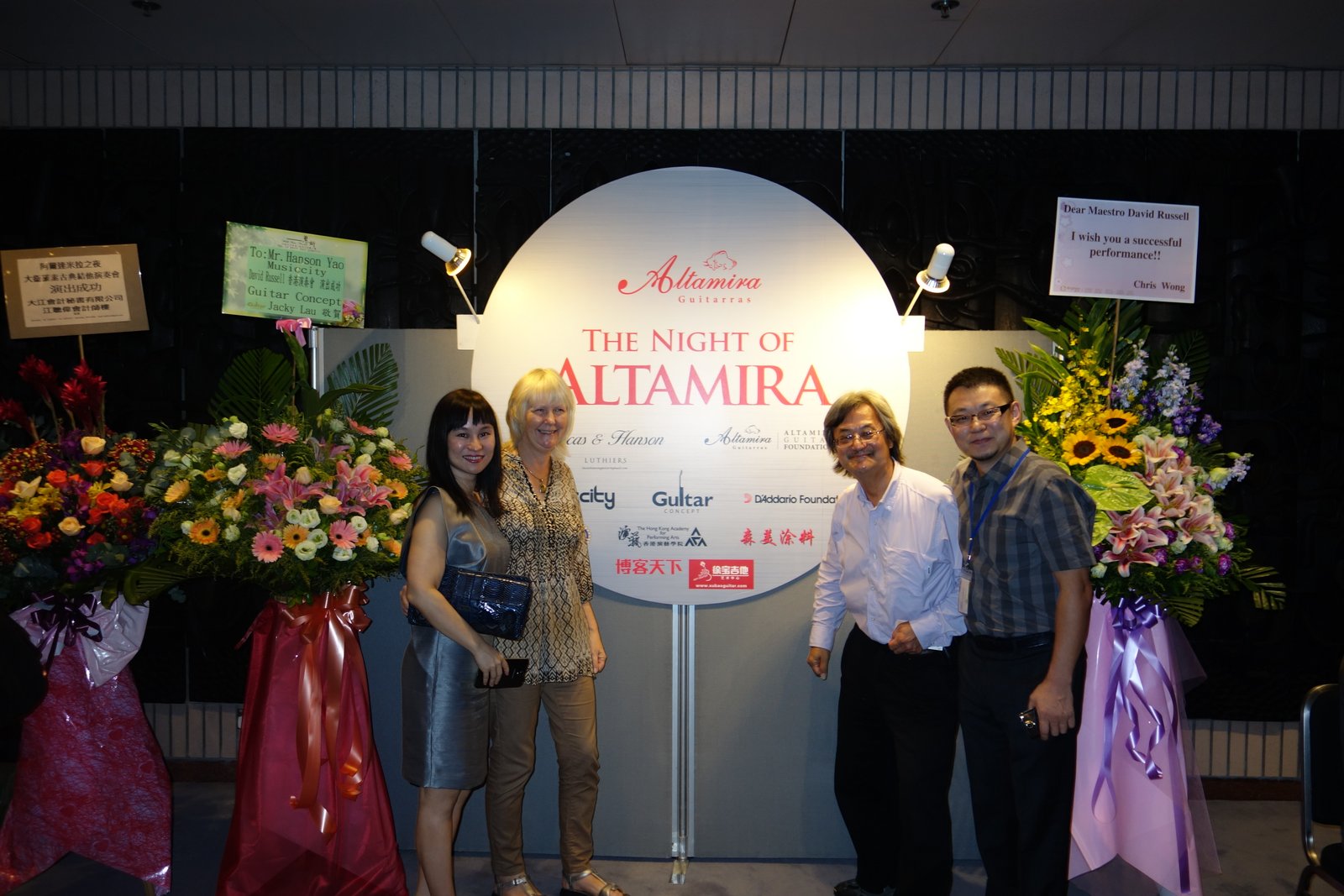
This enthusiasm for the guitar and hard work to get it established commercially in China is an undertaking which many of us could learn from – here’s to Hanson and Jenny’s continuing success.
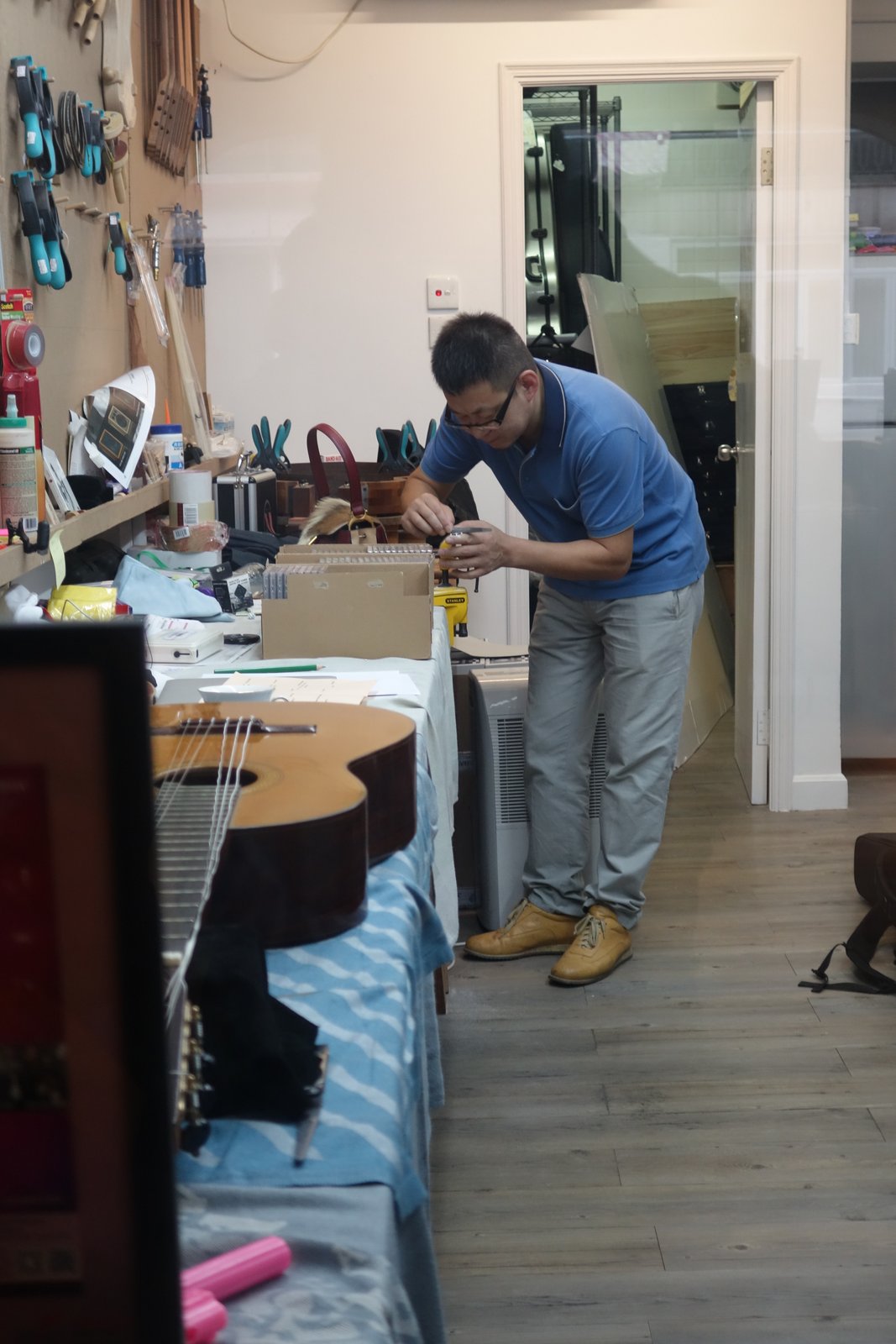
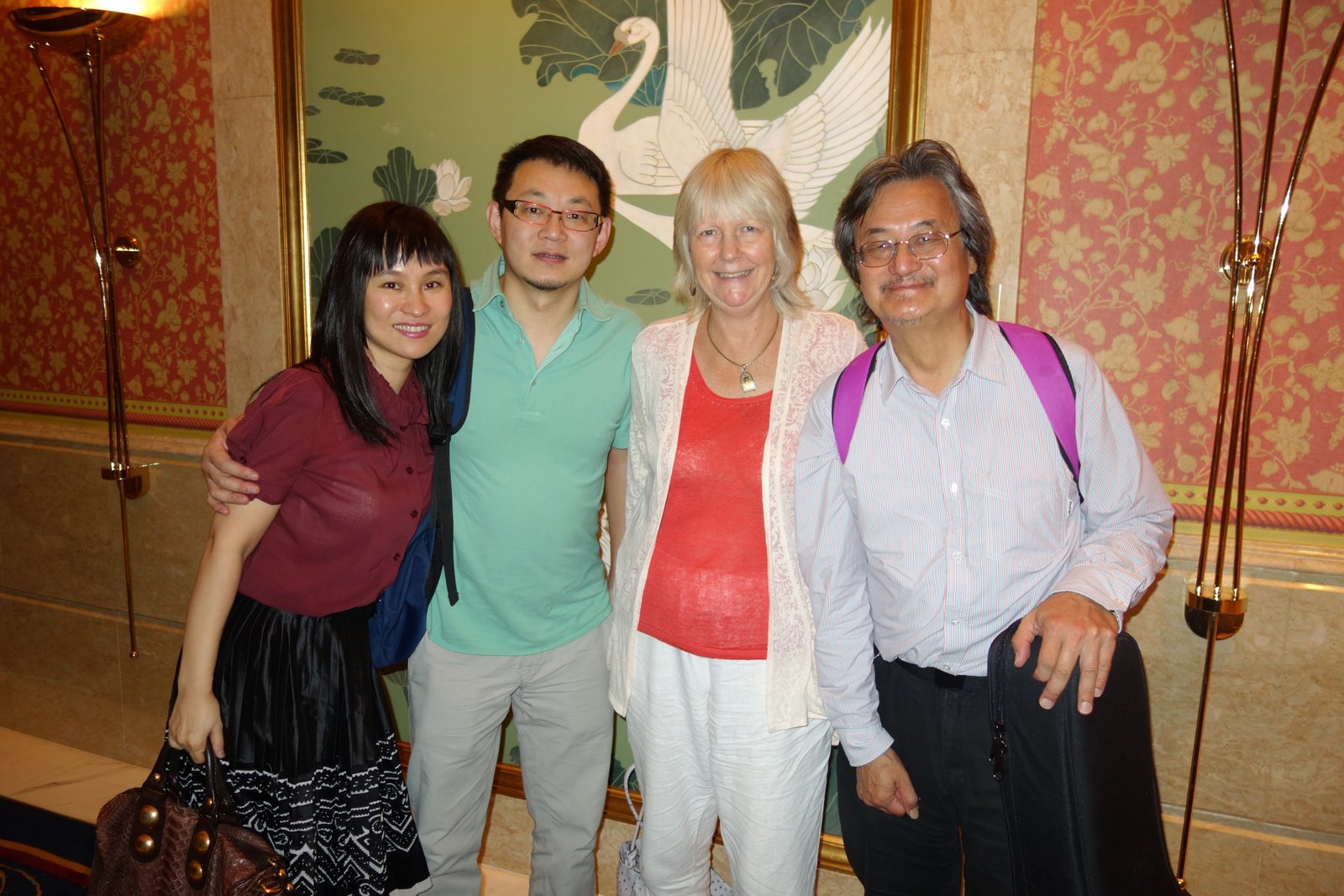
Jorge Caballero on mistakes and interpretation Interview 3
When I was at the Iserlohn Guitar Symposium this summer, I was happy to see Jorge Caballero again, and managed to spend some time picking his incredible brain on subjects such as technique, learning, focal dystonia and why he chose to transcribe a very difficult Mozart Sonata for solo guitar. The interview is in three parts, but unfortunately the camera ran out of steam during the third part, so this ends with Jorge playing “Malaga” from Iberia by Albeniz. This is from his stunning concert at the Goldsaal Schauburg, Iserlohn this year.
Jorge Caballero on Focal Dystonia Interview 2
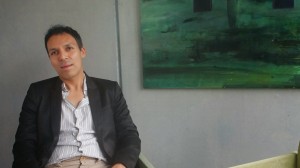 When I was at the Iserlohn Guitar Symposium this summer, I was happy to see Jorge Caballero again, and managed to spend some time picking his incredible brain on subjects such as technique, learning, focal dystonia and why he chose to transcribe a very difficult Mozart Sonata for solo guitar. The interview is in three parts, but unfortunately the camera ran out of steam during the third part. However, what there is is still fascinating and gives an insight into the mind and method of one of the great guitarists and musical thinkers of the 21st century.
When I was at the Iserlohn Guitar Symposium this summer, I was happy to see Jorge Caballero again, and managed to spend some time picking his incredible brain on subjects such as technique, learning, focal dystonia and why he chose to transcribe a very difficult Mozart Sonata for solo guitar. The interview is in three parts, but unfortunately the camera ran out of steam during the third part. However, what there is is still fascinating and gives an insight into the mind and method of one of the great guitarists and musical thinkers of the 21st century.

